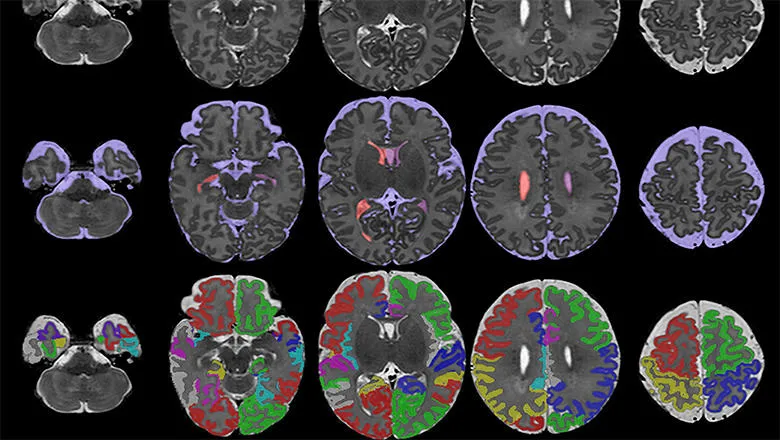26 September 2018
New study could help predict symptoms of autism and ADHD at birth
King’s researchers are set to start a three year study to identify those babies that are at a higher than average risk of developing autism spectrum conditions (ASC) and attention deficit hyperactivity disorder (ADHD)

The work will begin in October 2018, after nearly £200,000 of funding was secured from children’s charity Action Medical Research.
Having one or both of these neurodevelopmental conditions makes life difficult for children and their families, and can seriously affect children’s education, employment chances and quality of life. The researchers hope that by being able to spot the warning signs of these conditions during infancy, support can be provided a lot sooner than is currently the case.
Lead researcher, Dr Tomoki Arichi, Senior Lecturer in Paediatric Neurodisability at King’s said: ‘ASC is estimated to affect one per cent of children in the UK and typically leads to impaired social interaction and communication. ADHD is more common, affecting up to five per cent of UK children, and is characterised by overactivity, impulsive behaviour and difficulties in paying attention.’
It is already known that a family history of ASC or ADHD puts a child at a higher risk of developing these conditions. However it is still not known exactly what makes a baby vulnerable to these conditions. This has made it difficult to identify, develop and deliver interventions to those who need it most.
There is now evidence that understanding the balance between two chemical messengers in the brain – known as neurotransmitters – called glutamate and GABA, may be key to understanding what leads to altered brain development.
Dr Arichi and his King’s colleagues, Dr Enrico De Vita, Reader of Medical Physics, and Dr Grainne McAlonan, Professor of Translational Neuroscience, are exploring the role of these two brain chemicals in shaping the developing brain.
Dr Arichi explains: ‘We want to see if a sophisticated scanning technique which measures the levels of these two particular neurotransmitters in the brain could allow earlier prediction of neurodevelopmental conditions in newborn babies known to be at risk.’
The team will use Magnetic Resonance Imaging (MRI) scanners and a state-of-the-art method called magnetic resonance spectroscopy (MRS) which can measure the levels of chemicals in the living brain safely and precisely.
They will measure glutamate and GABA levels in the brains of 80 newborn babies using a MRI scanner at St Thomas’ Hospital London with special adaptations and staff for scanning babies. They will also pioneer scanning babies on a new, highly powerful 7 Tesla MRI scanner which will be installed at St Thomas’ Hospital in the coming months.
Dr Arichi explains: ‘Half the babies will be at high risk of developing a neurodevelopmental condition, due to an affected close family member, and half will have no increased risk – this group will be our control.’
The researchers will compare results between the two groups to see if there are any differences.
Dr Tracy Swinfield, Director of Research at Action Medical Research, comments: ‘Action Medical Research is very pleased to support this study. This research could lead to a new, safe, non-invasive technique to identify babies who may develop difficulties later in childhood, enabling early support and intervention where appropriate.’
‘Studying neurotransmitter levels in the brain in early life could also help to inform new treatment strategies for currently incurable conditions such as ASC,’ adds Dr Swinfield.
